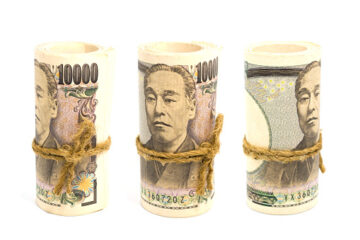Over the past few years, Nissan (NSANF) has battled shrinking sales and profits as it struggles to attract consumers.
In November last year, Nissan warned that it will cut 9,000 jobs globally after its operating profit dropped by roughly 90% due to weak sales in the U.S. and China. In addition, it said it will reduce its production capacity by 20%.
💵💰Don’t miss the move: Subscribe to TheStreet’s free daily newsletter 💰💵
Then-Nissan CEO Makoto Uchida voluntarily cut his monthly compensation by 50%, and other executive committee members also agreed to voluntarily take a pay cut. Nissan is predicting that these cost-cutting efforts will help it save about 400 billion yen ($2.6 billion).
Related: Uber CEO has a harsh message for frustrated employees
“Facing a severe situation, Nissan is taking urgent measures to turn around its performance and create a leaner, more resilient business capable of swiftly adapting to changes in the market,” said Nissan in a press release last year.
Nissan is planning cost-cutting measures.
Image source: NurPhoto/Getty Images
Nissan makes a tough decision
Nissan’s struggles come as it faces intense competition from rising Chinese EV automakers that offer more advanced technology and software integration in their vehicles.
As Nissan continues to face declining profits (its third-quarter earnings report for fiscal year 2024 revealed that its operating profit shrank by about 78% year-over-year during the quarter), it has decided to make another harsh decision.
Related: IBM gives employees a rude awakening with harsh new policy
The automaker is planning to slash an additional 10,000 jobs globally, bringing its total planned job cuts to 20,000 and impacting 15% of its workforce, according to a new report from Japan’s national broadcaster NHK.
Nissan faces a growing threat
The move from Nissan comes as President Donald Trump’s tariffs threaten to further strain its business. Tariffs are taxes companies pay to import goods from overseas, and the extra cost is often passed down to consumers through price hikes.
Earlier last month, Trump imposed a 25% tariff on foreign-made cars and an additional 25% tariff on imported car parts. This will impact Nissan, which manufactures its cars in the U.S., Japan, and Mexico.
More Labor:
Amazon CEO gives hard-nosed message to employeesIBM gives employees a rude awakening with harsh new policySnapchat CEO teaches new employees a strict lesson
President Trump later softened the blow of those tariffs by rolling out new rules to make sure automakers won’t be charged for other levies, such as those imposed on aluminum and steel.
As tariffs set in, consumers are changing their tune about purchasing new vehicles, which also threatens to impact automakers’ sales across the country.
According to a recent CNN report, data from the Conference Board has found that the number of Americans who plan to purchase new or used vehicles over the next six months has steeply decreased.
The board found that only 10.5% of Americans plan to buy a car, while 2.4% intend to buy a new car. That is a decline from the 13.1% who were looking to buy a car as recently as December and the 2.9% who were looking to purchase a new vehicle.
“People are nervous about inflation and tariffs, but they’re also beginning to be nervous about [their] employment situation,” said Erin McLaughlin, senior economist at the Conference Board, while speaking to CNN.
Related: Veteran fund manager unveils eye-popping S&P 500 forecast


